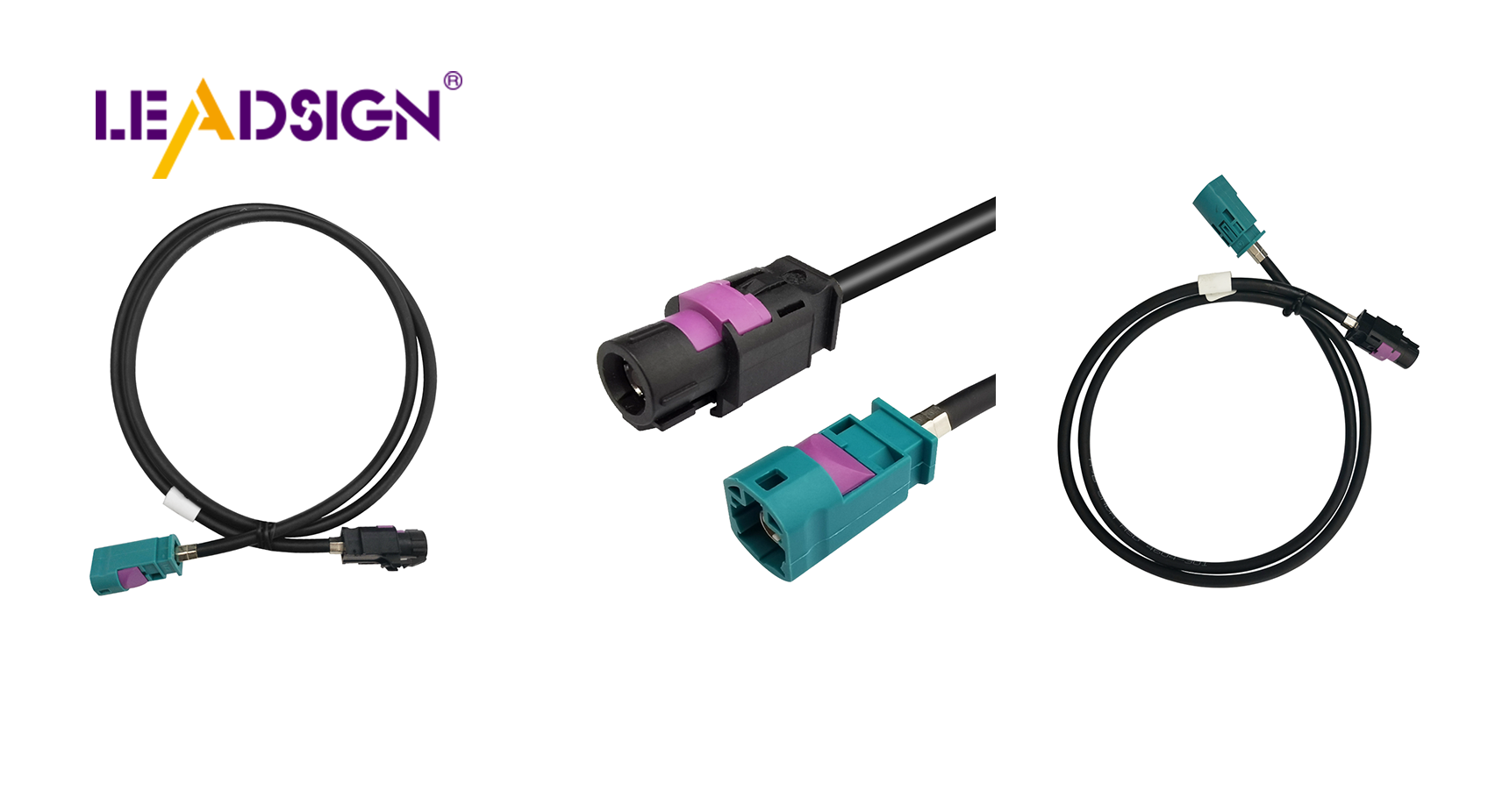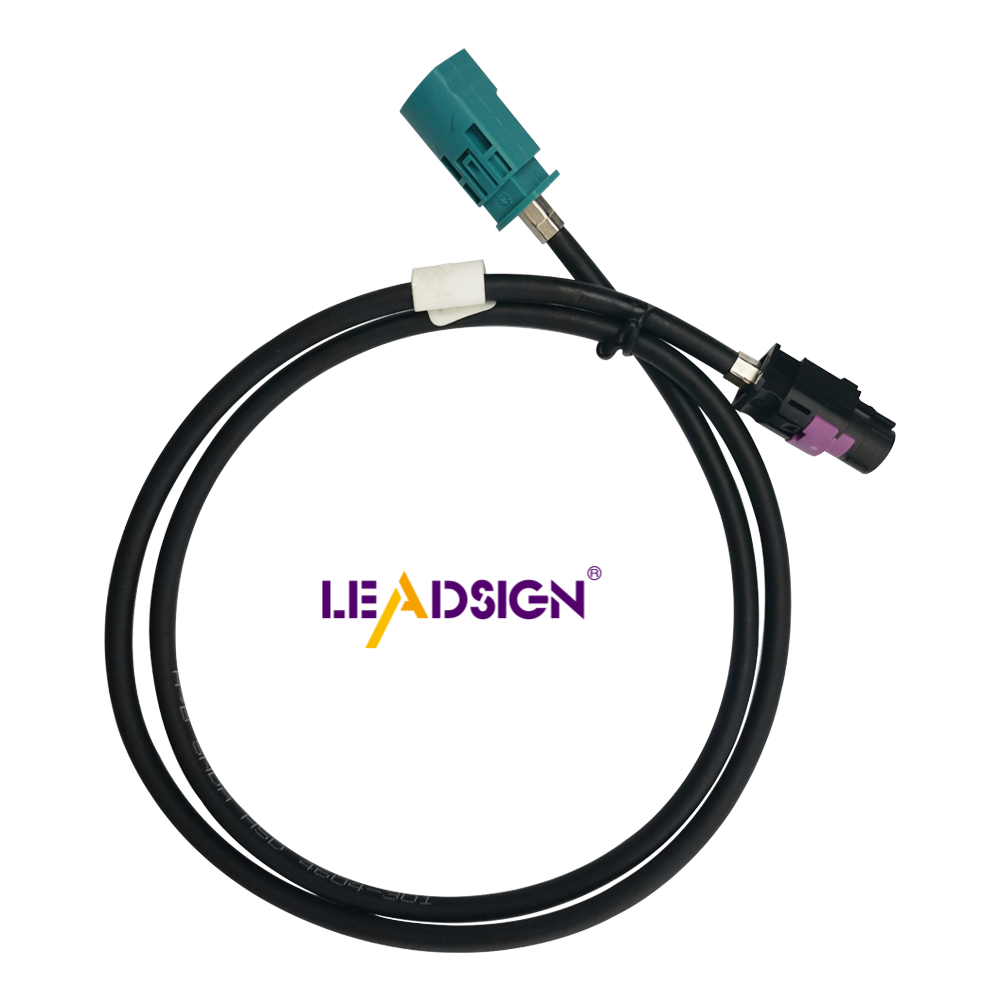Guide to Automotive Wiring Connector Types for Effective Use

In cars, automotive electrical connectors types are key for electrical links. You need these connectors to help parts talk to each other. Picking the right connector is important for different uses. Different connector types have different reliability and efficiency. Things like heat and power affect how they work. A good connector lowers failure chances, making your car safer and better. Knowing these details helps you choose well for your car's electric system.
Understanding Automotive Wiring Connectors

What are Wiring Connectors?
Definition and basic function
Wiring connectors are important in cars. They link electric parts together. This helps car parts talk to each other. Connectors send power and signals well. They make sure connections stay strong and safe. This is very important for how the car works.
Role in automotive systems
In cars, wiring connectors are very important. They connect different electric systems together. Without them, a car's electric system won't work right. They help things like the engine run smoothly. Strong connections stop electric problems and keep the car safe.
Types of Automotive Electrical Connectors
Bullet Connectors
Bullet connectors are easy to use in cars. You can quickly attach or remove wires with them. Their design keeps wires from coming loose when the car shakes.
Butt Connectors
Butt connectors join wires permanently. They make a strong link that is needed in cars. Use them to connect wires end-to-end for steady electricity flow.
Ring and Spade Terminals
Ring and spade terminals are common in car wiring. They attach securely to screws or studs. You can use them for battery or ground wire connections.
Quick Disconnects
Quick disconnects let you remove wires fast and easily. Use them when you need to change parts often without hassle.
Weatherproof Connectors
Weatherproof connectors protect against rain, dust, and dirt. They're great for cars exposed to bad weather, keeping connections safe and lasting long.
Why Good Connectors Matter
In cars, good connectors are very important. They affect how well your car works and lasts. Picking the best connectors helps your car run safely and smoothly.
How They Help Your Car Work Better
Saving Electricity
Good connectors help save electricity in cars. They let power move easily through the car's parts. With top connectors, you lose less energy. This makes things like lights work better. Good connectors also stop wires from getting too hot, which can break them.
Keeping You Safe
Good connectors help keep you safe by making strong links that don't fail easily. Choosing good connectors help keep you safe lowers the chance of short circuits or fires. This keeps everyone safe when driving. Always pick safe connectors that follow rules.
Lasting Long and Staying Strong
Fighting Bad Weather
Connectors in cars need to handle tough weather. Good ones fight off water, dirt, and heat changes. Using strong connectors stops rust and damage to wires. This keeps your car's wiring safe even when it's rough outside.
Strong Materials
The stuff used for making connectors matters a lot for strength. Pick ones made with strong metals like copper or brass. These metals carry power well and don't rust easily. By choosing strong materials, you make your car's electric system last longer, saving money on fixes later.
Picking the Right Connector
Things to Think About
Special Needs for Use
When picking a connector, think about what you need it for. Different car parts need different connectors. For high power, pick big pin connectors. This makes sure they touch well and send power right. The material is important too. Choose copper, brass, or bronze ones. These are good at carrying electricity and don’t rust.
Fit with Current Systems
Make sure connectors fit your car's systems well. They should match the wires already there. OEM connectors are often a good choice. They meet high standards and work well in cars. Picking the right ones stops electric problems and makes your car work better.
Mistakes to Watch Out For
Forgetting Weather Effects
Not thinking about weather can break connectors. Pick ones that handle where they will be used. Strong vehicle connectors work in tough places. They keep working even when it's bad outside. Always think about heat, wetness, and shaking when choosing them.
Not Checking Connector Limits
Connector limits matter for safety and how they work. Each has limits for volts, current, and heat. Ignoring these can cause problems or danger. Always check before picking one out. Choose those that meet or go beyond what you need so your car stays safe.
Practical Tips for Effective Use
Best Ways to Install
How to Crimp Right
When putting in car wiring connectors, crimping right is key. It makes sure wires and connectors stay together well. First, pick the right tool for your connector. Put the wire in and squeeze with the tool. Make sure it's tight, or it might not work well.
Making Sure Connections Stay Strong
To keep connections strong, always check twice. After crimping, pull on the wire gently to see if it holds tight. This stops wires from shaking loose in the car. You can also use heat shrink tubing or tape for extra safety from weather.
Keeping Things Working Well
Checking Regularly
Checking often keeps your car's wiring safe. Set times to look at connectors for wear or damage. Look for color changes or broken wires as they show problems. Finding issues early stops bigger troubles later.
Expert Testimony: "How you store your automotive electrical connectors affects how well you manage vehicle repairs." - Expert, Automotive Electrical Connectors
Storing connectors right helps too. Pick a place just for them and check them often to keep them good.
Spotting and Fixing Problems
Finding and fixing connector problems saves time and money. Common issues are loose wires, rust, or breaks. If you see these, fix them fast. Clean rusty parts with cleaner and swap out bad ones. For broken wires, use a new connector and crimp it well again.
By following these tips, your car's electric system will work better longer. Good installation, regular checks, and quick fixes keep wiring working great.
Choosing the right automotive wiring connectors is very important. They help your car work well and stay safe. Connectors link different electric parts in cars. They let power and signals move easily. More electronic parts mean connectors matter more.
Expert Insight: "Car electrical plug connectors are key for any vehicle to work."
Use the tips in this guide to make your car's electric system better. This helps it last longer and work well, keeping your car running smoothly.
See Also
Essential Guide to HSD Connectors for Auto Sector
Navigating Ford's Fakra Connector System
Significance of Modern Vehicles' Fakra Auto Connectors

